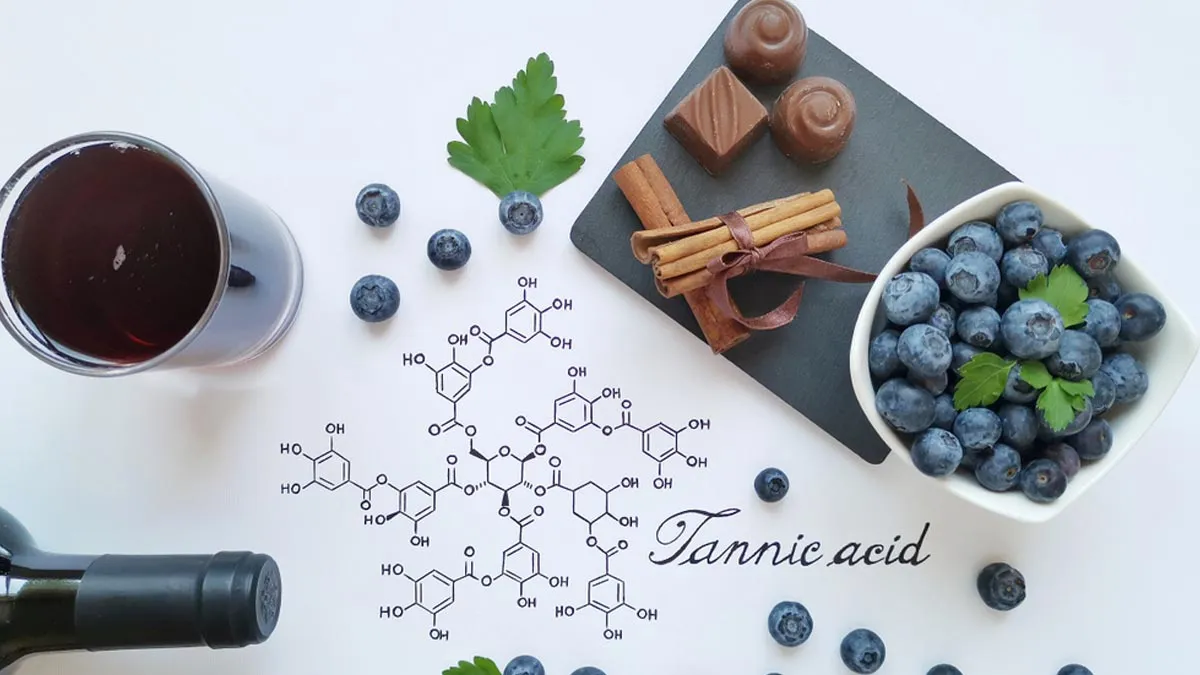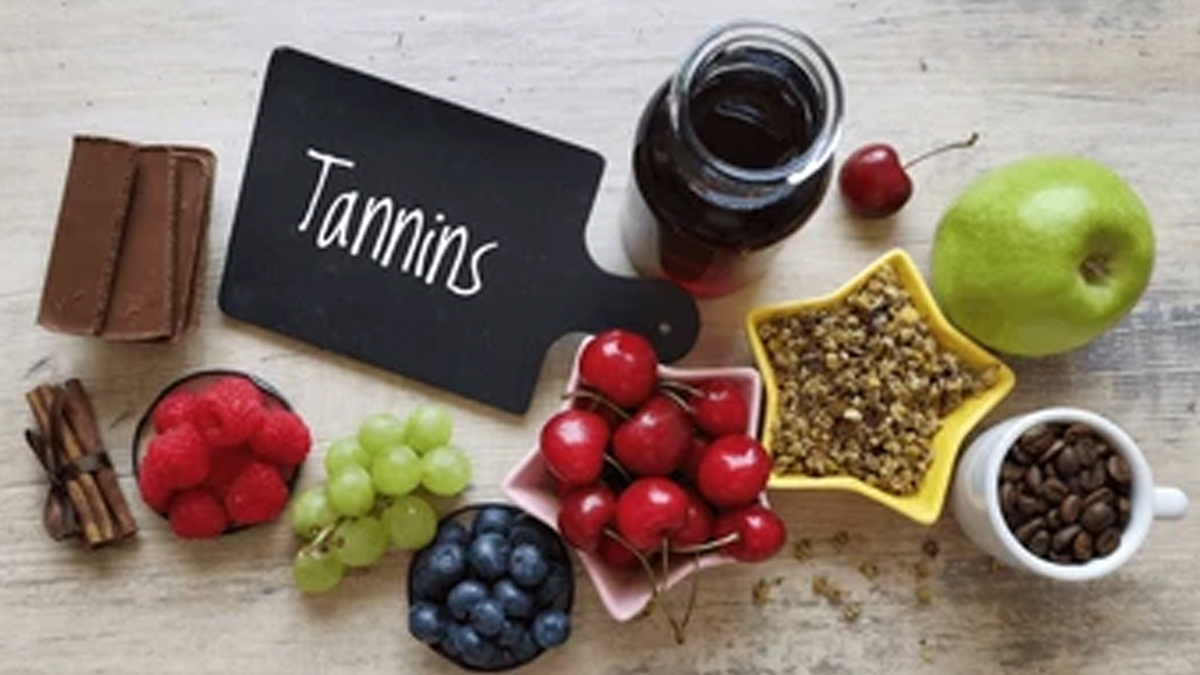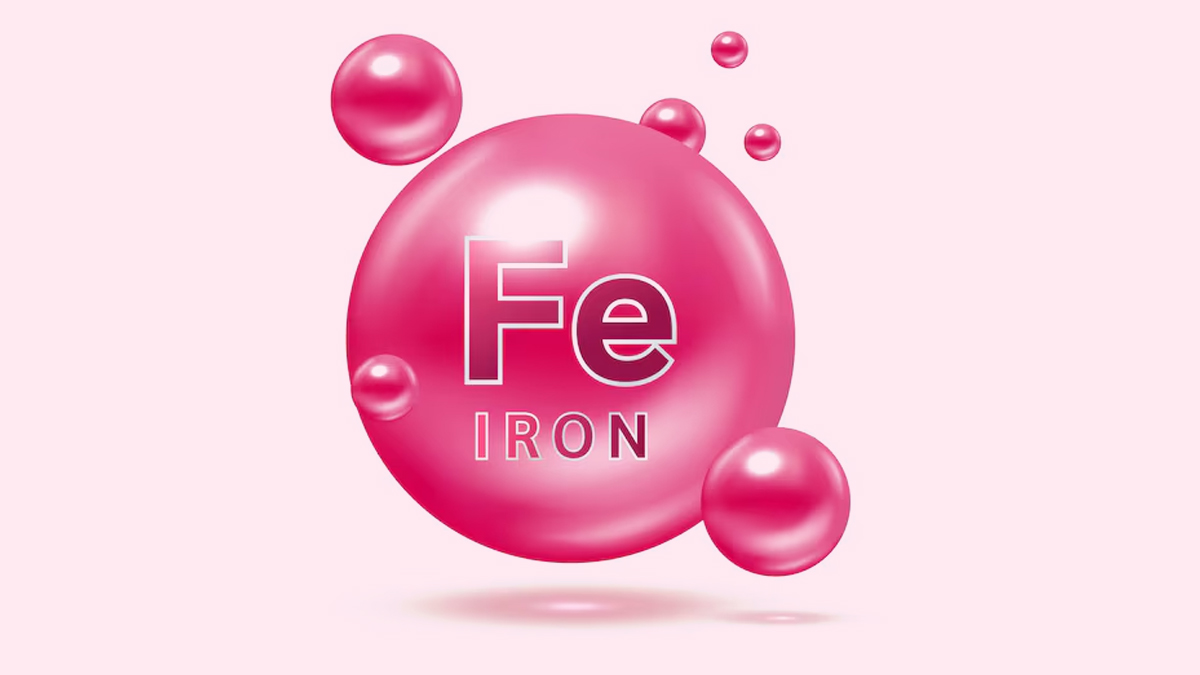
Have you ever sipped on strong black tea or red wine and noticed that drying, puckering feeling in your mouth? That’s tannic acid in action. While it might just seem like a quirky side effect of your favourite drinks, tannic acid is a fascinating natural compound with a bunch of surprising benefits. This naturally occurring compound, found in tea leaves, wine, oak bark, and some fruits, has been showing up in both wellness and beauty conversations.
Table of Content:-
What is Tannic Acid?

Tannic acid is a type of tannin, a plant-based compound known for its astringent properties. While tannins are a broader group, tannic acid is a specific form that’s often extracted and used in various health, skincare, and even industrial products.
Benefits of Tannic Acid
Natural Antioxidant

Tannic acid contains high levels of polyphenols, which are compounds known to fight oxidative stress in the body. Or simply, it helps to fight free radical damage, those pesky unstable molecules that can lead to ageing, inflammation, and chronic disease. According to a 2022 study, TA has demonstrated properties that can decrease inflammation by acting as an antioxidant, function as an antibiotic against common pathogenic bacteria, and trigger apoptosis in various types of cancer.
Skin Soothing and Pore-Tightening
Tannic acid is valued in skincare for its astringent properties. It minimises pores, reduces excess sebum, and calms redness, which is why it is a popular ingredient used in toners, acne creams, and soothing moisturisers. It might also reduce redness and swelling due to its vasoconstrictive properties.
Also Read: Arbutin For Hyperpigmentation: Here's How It Helps In Fading Dark Spots And How to Use It
Digestive Relief
Historically, tannic acid has been used to soothe the digestive tract. Some herbal remedies use it to help with diarrhoea or mild gastrointestinal inflammation, thanks to its ability to “tighten” tissues and reduce irritation. However, this should be done under medical guidance.
Antibacterial and Antiviral Properties
Tannic acid may have antimicrobial properties, which help inhibit the growth of certain bacteria, viruses, and fungi. This makes it a potential component of natural mouthwashes or even dressings for wounds.
Side Effects Of Tannic Acid to Watch Out For
Despite all the positives, tannic acid isn’t a one-size-fits-all miracle. Too much of I, especially when consumed can cause trouble.
Iron Absorption Issues

One of the most talked-about drawbacks is its effect on iron absorption. Tannic acid can bind to iron in the digestive system and make it harder for your body to absorb, especially if you are relying heavily on plant-based sources of iron. This could lead to iron deficiency over time, especially in people with anaemia.
Stomach Irritation
Tannic acid may lead to nausea or stomach discomfort in some individuals when taken in high doses or on an empty stomach. It is always wise to begin with a small dose and observe how your body responds.
Skin Sensitivity
While it's great for acne and oily skin, tannic acid can be too drying or irritating for some, particularly those with very dry or sensitive skin. Hence, always patch test before attempting a new product.
How to Use Tannic Acid Safely
In Skincare
Look for serums, creams, or toners that list tannic acid as a key ingredient, usually at a low concentration. Apply it once a day, preferably in the evening, and then use a hydrating moisturiser to balance any dryness.
As a Supplement
You should take tannic acid supplements only when prescribed or suggested by a healthcare professional. Short-term use is suitable for treating certain digestive disorders, but self-administration is not recommended.
Through Diet
You’re already getting small amounts of tannic acid from foods like tea, coffee, grapes, apples, and red wine. That’s generally safe for most people and can even be beneficial when part of a balanced diet.
Bottomline
Tannic acid is one of those naturally occurring compounds that offer a lot when used wisely. It has real potential in skincare and natural medicine, but like most powerful ingredients, it’s all about balance. Listen to your body, don't overdo it, and when unsure, consult your dermatologist or nutritionist.
[Disclaimer: This article contains information for informational purposes only. Hence, we advise you to consult your professional if you are dealing with any health issue to avoid complications.]
Also watch this video
How we keep this article up to date:
We work with experts and keep a close eye on the latest in health and wellness. Whenever there is a new research or helpful information, we update our articles with accurate and useful advice.
Current Version